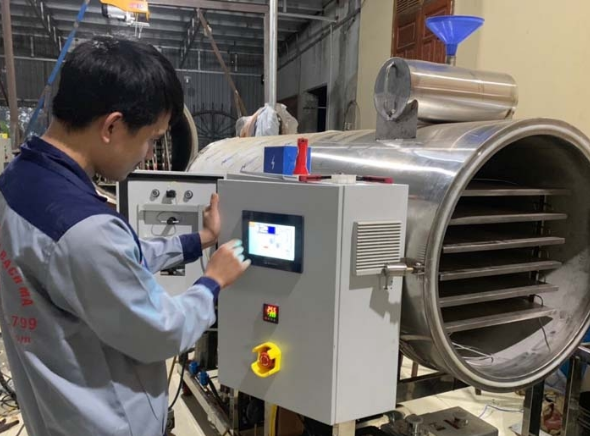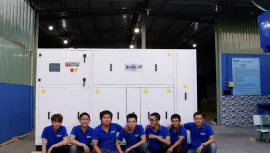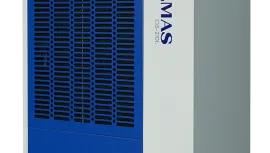- Home
- About Us
- Products
-
Heat-Pump Dehumidifier DeAir
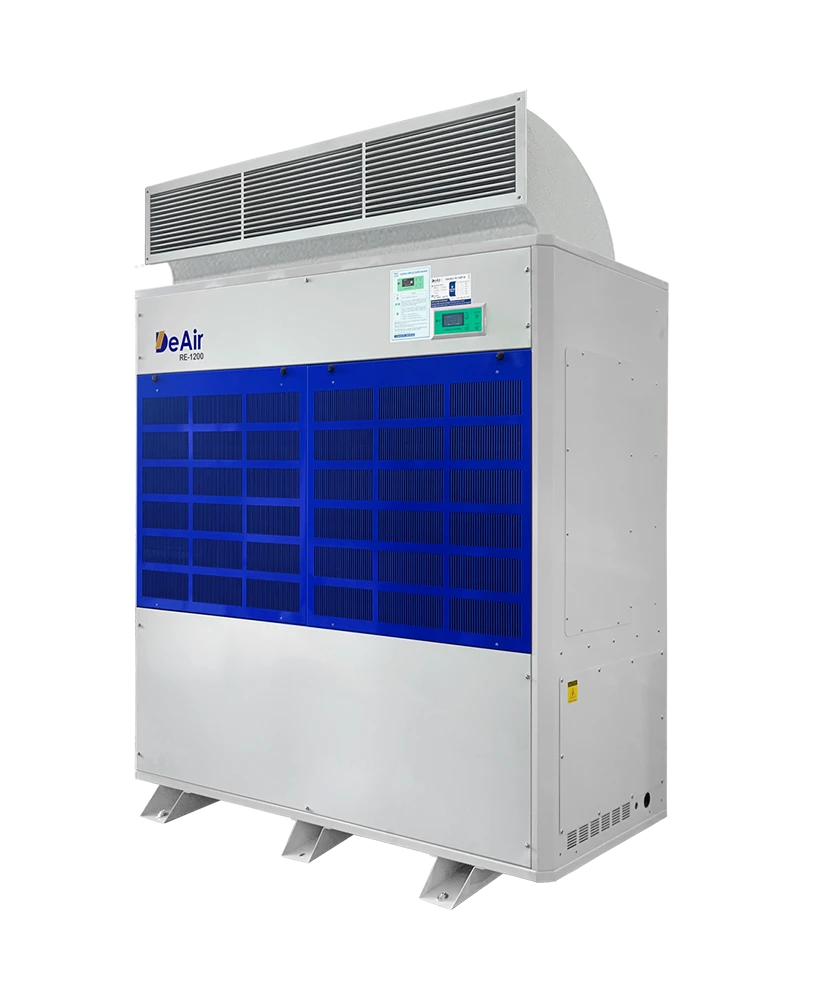 DeAir.RE
DeAir.RE -
Heat-Pump Dryer DeAir.RE-H
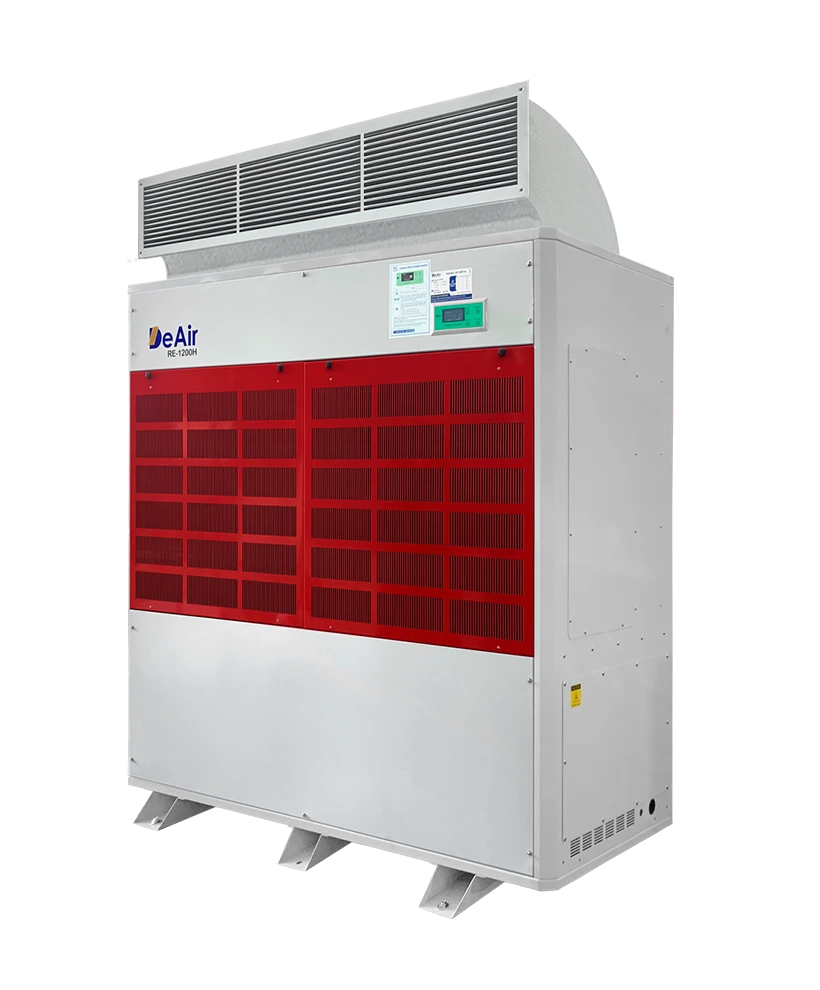 DeAir.RE-H
DeAir.RE-H -
Heat-Pump Stainless Steel Dehumidifier
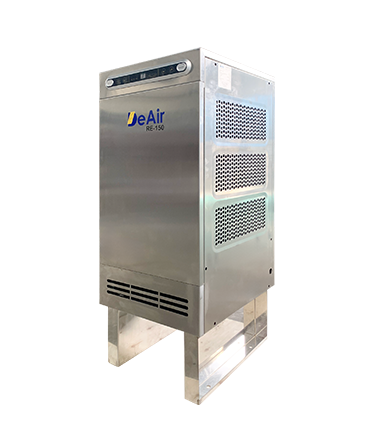 DeAir.RE-INOX
DeAir.RE-INOX -
Heat-Pump Isothermal Dehumidifier DeAir.CRE
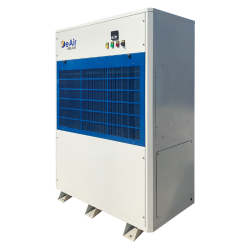 DeAir.CRE
DeAir.CRE -
Dezenno Dehumidifier
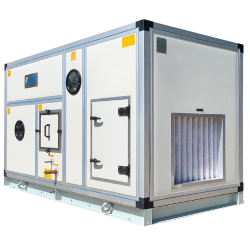 Dezenno
Dezenno -
Heat-Pump Ceiling Mounted Dehumidifier DeAir
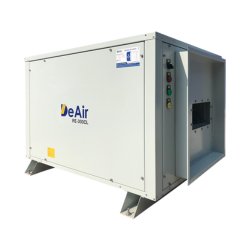 DeAir.RE-CL
DeAir.RE-CL -
Dehumidifier Olmas
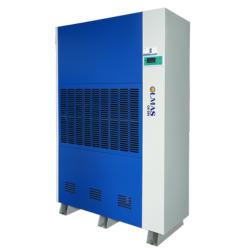 Olmas-OS
Olmas-OS -
Industrial Humidifier DeAir
 DeAir.HM
DeAir.HM -
Heat-Pump Dryer Daxwell
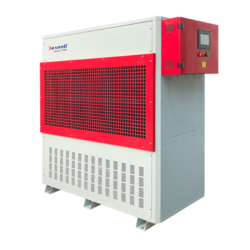 Daxwell
Daxwell -
Electric Duct Heater DeAir
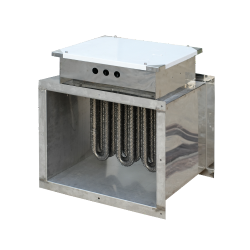 DeAir.Heat
DeAir.Heat -
Air Handling Unit Dezenno.MAX
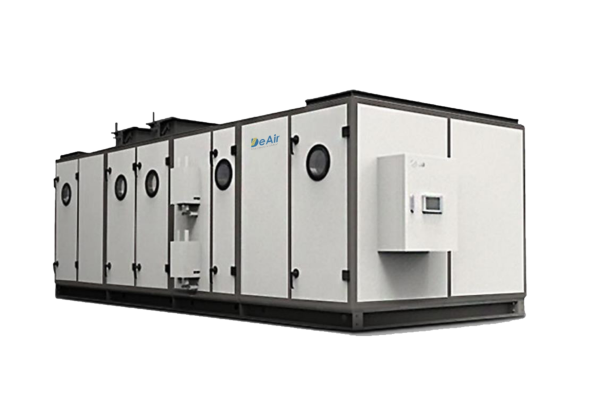 AHU
AHU
-
- Services
- Projects
- Warranty – Maintenance
- News
- Contact
Dehumidifiers: Comprehensive Solution for Mold Prevention and Health Protection
28/08/2024
Dehumidifiers: Comprehensive Solution for Mold Prevention and Health Protection
High humidity is the leading cause of mold and bacteria growth, which not only damages furniture and interiors but also severely affects human health, especially respiratory illnesses and allergies. Controlling indoor humidity has become urgent, and a dehumidifier is the optimal and most effective solution.
Investing in a household dehumidifier for your home or an industrial dehumidifier for your business at the first sign of dampness will help you proactively prevent these issues, protecting your assets and health.
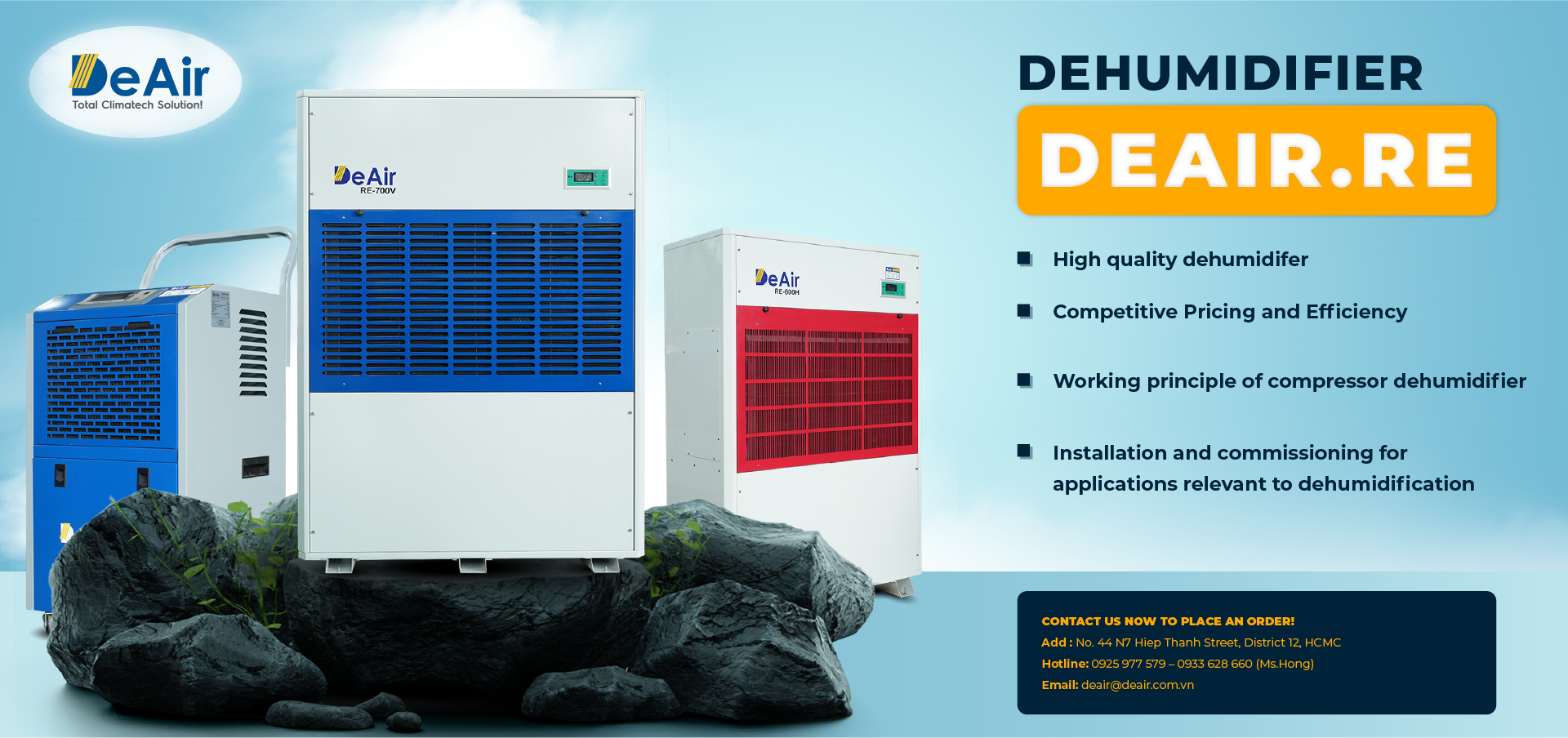
1. What is a Dehumidifier and How Does It Work?
A dehumidifier is an electrical appliance or industrial equipment designed to remove excess moisture from the air, helping to maintain stable humidity in a given space. The most common operating principle of dehumidifiers is the condensation method:
- The unit draws humid air from the environment through a fan.
- The humid air passes over a cooling coil, where water vapor condenses into droplets due to a sudden temperature drop.
- The condensed water is collected in a reservoir or is automatically drained out via a pump.
- The dehumidified air is then slightly reheated (via a hot coil) and blown back into the environment, creating a drier space.
Depending on the model and capacity, water can be held in a collection tray (for mini dehumidifiers or small-capacity household units) or automatically discharged via a pump (common in industrial dehumidifiers and some high-end residential models).
1.1. Areas Where Dehumidifiers Should Be Used
Dehumidifiers are most effective in areas with high humidity or where strict humidity control is required, including:
- Residential areas:
- Basements, small storage rooms
- Bedrooms, living rooms (especially during humid seasons)
- Bathrooms, kitchens (areas prone to condensation)
- Libraries, rooms storing valuable wooden items, musical instruments
- Industrial & commercial areas:
- Storage facilities (machinery, documents, medicines, ammunition, fabrics, agricultural products...)
- Laboratories, clean rooms
- Manufacturing plants (food, electronics, pharmaceuticals...)
- Gyms, spas, indoor swimming pools
- Conference rooms, data centers
2. Outstanding Benefits of Using a Dehumidifier
In addition to removing excess moisture, dehumidifiers offer many other significant benefits. To learn more, you can read our detailed article on 15 essential benefits of dehumidifiers.
-
2.1. Enhancing Air Conditioning Efficiency & Energy Savings
Many people wonder why they still feel hot and "sticky" even with the air conditioner running. The main reason is excessively high humidity in the air that the air conditioner cannot fully remove. A dehumidifier will help reduce humidity, creating a cooler and more comfortable feeling at the same temperature setting. This allows you to set your AC to a higher temperature, leading to significant electricity cost savings. To delve deeper into energy-saving solutions, you can explore the DeAir Industrial Air Dehumidifier with Heat Pump Technology.
-
2.2. Mold Prevention & Health Protection
This is a core benefit of a dehumidifier. Maintaining ideal humidity levels (typically 40-60%) inhibits the growth of mold, bacteria, and allergens. This is particularly beneficial for those with allergies, asthma, or respiratory problems. Furthermore, humidity control helps prevent electrical leakage due to high humidity, ensuring safety for your family and assets.
-
2.3. Maintaining Furniture Lifespan & Building Structure Integrity
High humidity causes rot and warping in wooden furniture, damage to electronic devices, and corrosion of metals. A dehumidifier helps protect assets and maintain the structural integrity of your building, such as beams and wooden floors, avoiding costly repairs in the future.
-
2.4. Improving Air Quality
Some of today's good dehumidifiers are also equipped with air filters (HEPA, activated carbon) that help remove dust, pollen, odors, and other pollutants, bringing cleaner air to living and working spaces. If you are interested in a dehumidifier with integrated air purification, you can refer to the detailed review of the Olmas OS-25 Dehumidifier & Air Purifier.
3. Key Factors When Choosing a Dehumidifier
With the wide variety of models and types on the market, choosing a suitable dehumidifier can be confusing. Consider the following factors to make an informed decision:
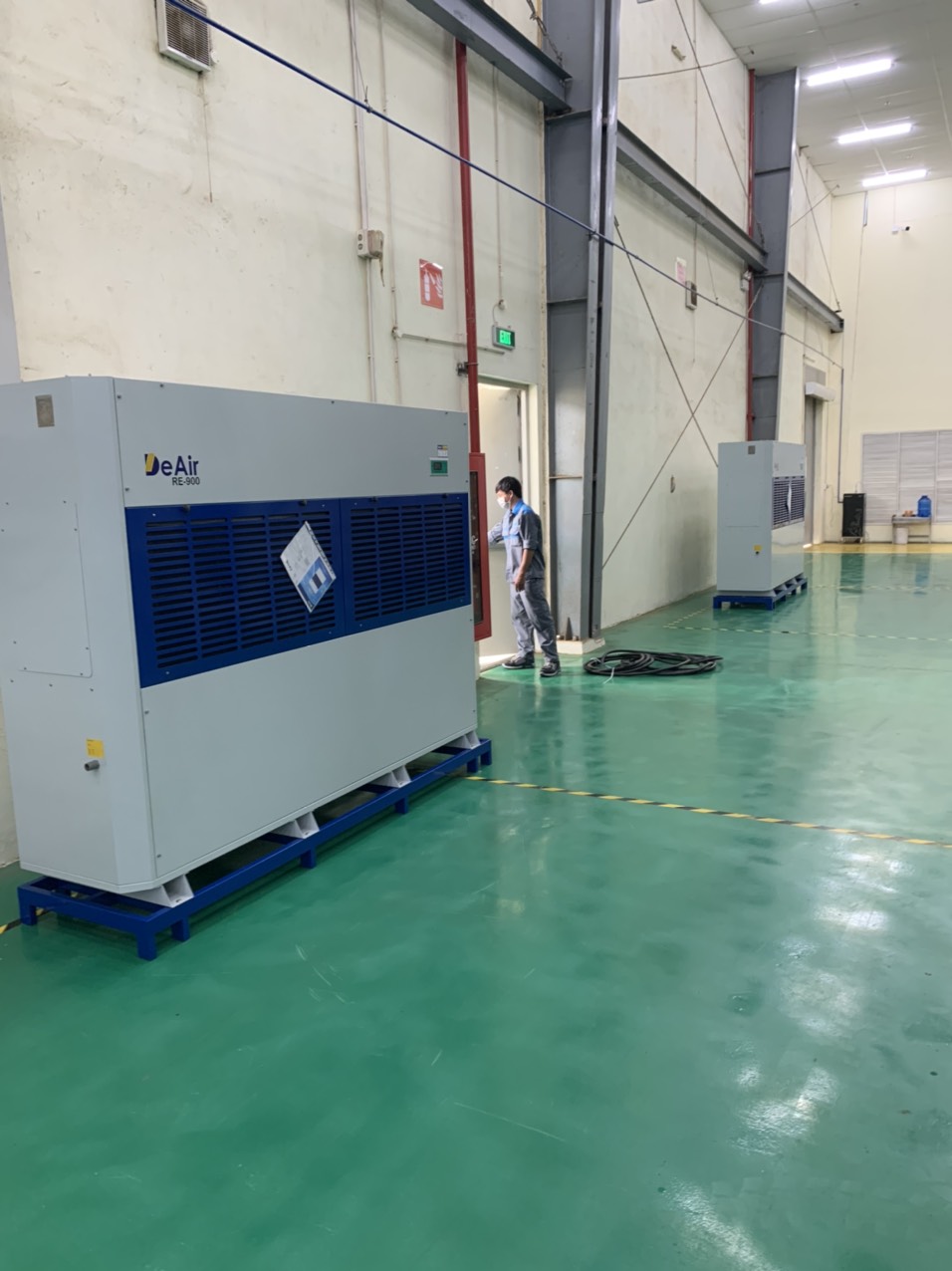
3.1. Dehumidifier Classification: Residential, Commercial & Industrial
- Household dehumidifier: Usually small to medium capacity (10-60 liters/day), compact design, suitable for homes, apartments, small offices. You can learn more about Olmas Household dehumidifiers.
- Commercial dehumidifier: Larger capacity (50-150 liters/day), used for stores, small warehouses, gyms, spas...
- Industrial dehumidifier: Very large capacity (over 150 liters/day, can be up to several hundred liters), robust design, durable operation in harsh environments, specialized for factories, large warehouses, production areas, laboratories. DeAir is a leading supplier of industrial dehumidifiers.
3.2. Dehumidification Capacity & Coverage Area
This is the most important factor. Dehumidification capacity is measured in liters/day (L/day) – the amount of water the unit can remove from the air in 24 hours. Room size and humidity level are the two main factors determining the required capacity.
If you are using the unit for multiple adjacent rooms or an open space, calculate the total area and consider choosing a slightly higher capacity unit. Choosing a dehumidifier that is too small for the area to be treated will cause the unit to run continuously, reducing its lifespan and consuming more electricity. To learn more about how to choose, you can read the detailed article on how to choose an effective industrial dehumidifier.
3.3. Actual Humidity Levels & Ambient Temperature Conditions
The higher the humidity, the harder the unit has to work. For example, a damp basement or coastal area will require a higher capacity unit than a typical living room. Additionally, temperature also affects unit performance. Some simple dehumidifiers may freeze at low temperatures (<5°C), reducing efficiency. Choose a unit with anti-frost function if you will use it in cold environments (e.g., cold storage, unheated basements). Specifically, you can learn about DeAir Heat Resistant Dehumidifiers for harsh environments.
3.4. Initial Investment and Long-term Economic Efficiency
Dehumidifier prices vary widely, from a few million to hundreds of millions of VND, depending on capacity, features, technology, and brand. Instead of just looking at the initial price, consider the total cost of ownership, including electricity consumption. An effective dehumidifier with the right capacity may be more expensive upfront but will save electricity and be more durable in the long run, offering greater economic value. To learn more about frequently asked questions when buying a dehumidifier, you can refer to the article Frequently asked questions when buying a dehumidifier.
To optimize your choice, ask yourself the following questions:
- What is the area that needs dehumidification (bedroom, warehouse, factory...)?
- What are the specific dimensions (area and volume) of the space?
- Is this area open to other spaces?
- Is the current humidity level high? (is there a musty smell, mold?)
- What kind of climate do you live in (hot and humid, cold and dry...)?
- What is your estimated budget?
- What specific benefits do you expect from a dehumidifier?
4. Work Efficiency & Actual Dehumidification Capacity
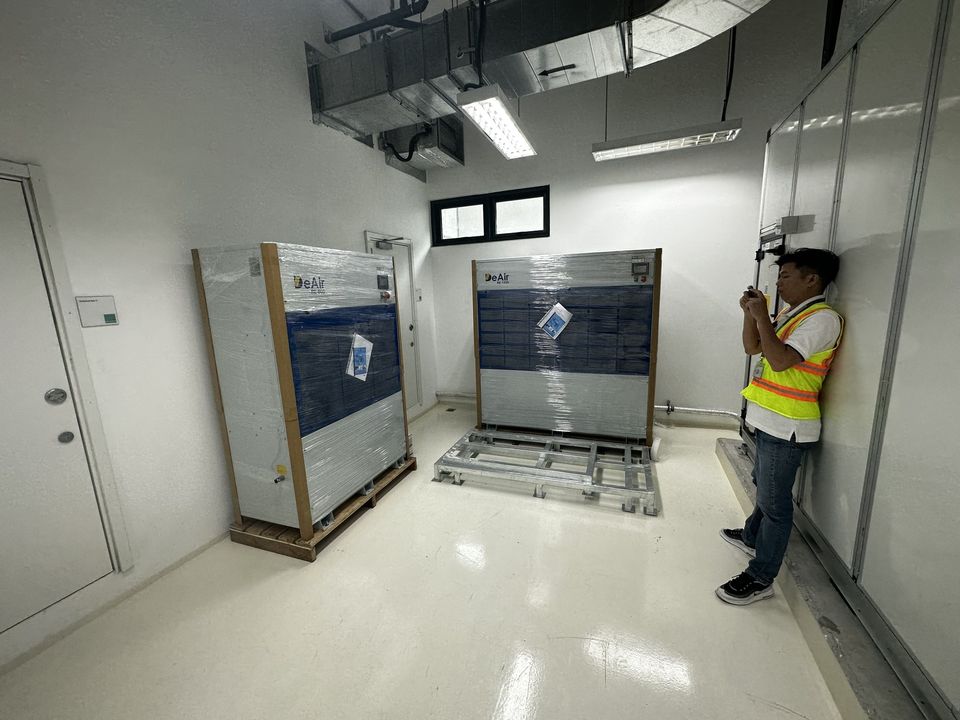
A common belief is that larger units are more efficient, which is true to some extent. A higher capacity dehumidifier will not have to "struggle" to handle humidity, leading to stable operation, fewer breakdowns, and a longer lifespan. Choosing the right dehumidifier for your actual area and humidity level is key to achieving energy efficiency and optimal results. You can refer to high capacity dehumidifiers for a comprehensive overview.
However, the dehumidification performance stated by manufacturers is often measured under ideal conditions (e.g., 30°C, 80% humidity). In actual conditions (Aham - 26.7°C, 60% humidity), the dehumidification capacity may be lower. Therefore, consult experts or read real-world reviews to get an accurate understanding of the dehumidifier's efficiency in your specific usage conditions. Notably, DeAir offers DeAir Industrial Dehumidifiers with proven performance.
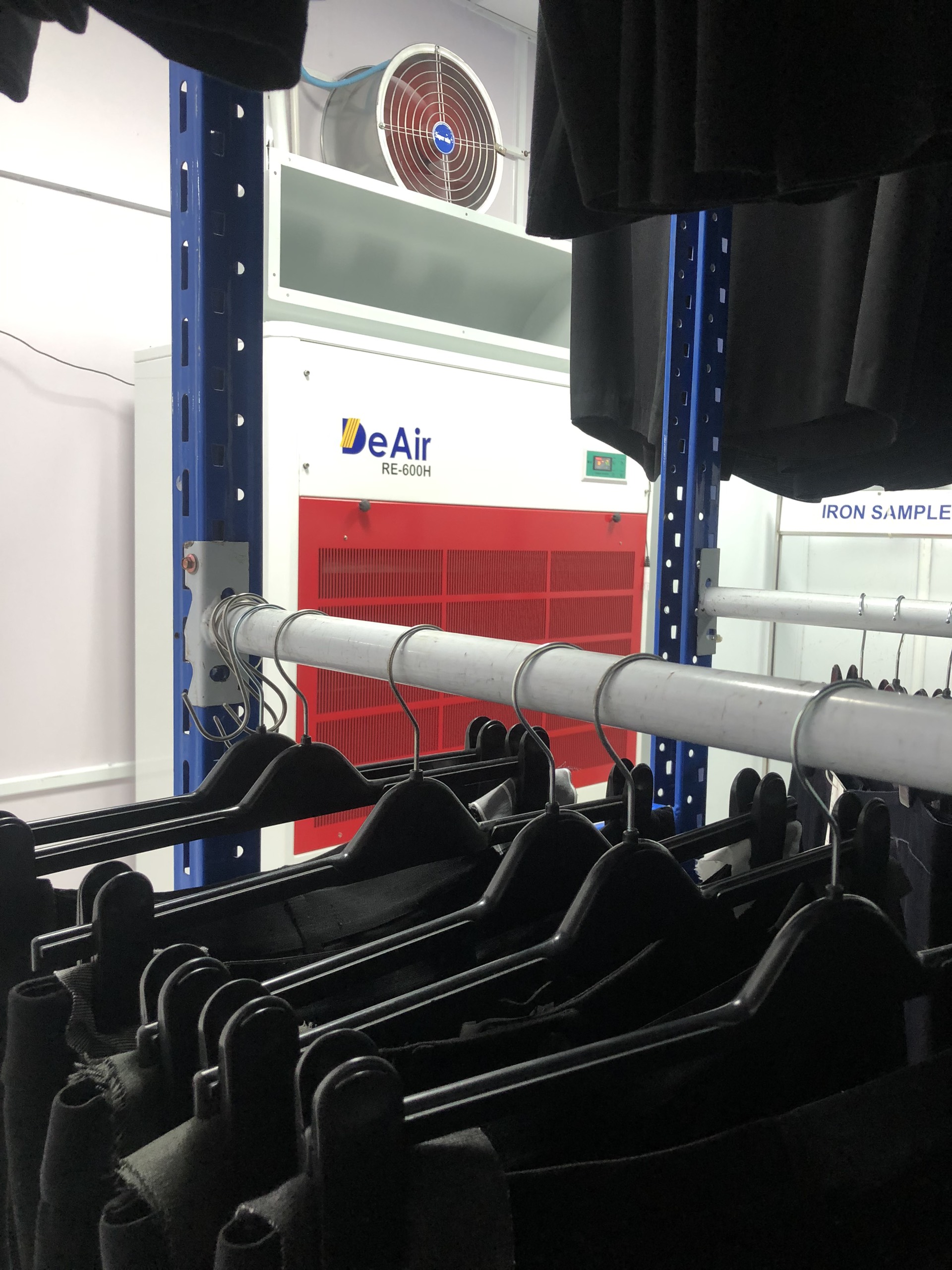
Conclusion
A dehumidifier is not just a simple appliance but a comprehensive solution to protect health and assets from the effects of humidity. By understanding your needs and technical factors, you can easily choose the most suitable dehumidifier, bringing a dry, fresh, and safe living and working environment.
If you need more in-depth consultation on products like the Heat Pump Dehumidifier DeAir for the seafood industry, DeAir Industrial Dehumidifier, or humidity control solutions for specific industries such as the electronics industry, food industry, or pharmaceutical industry, do not hesitate to contact us for the best support.
Sign up for news from DeAir
Related news






